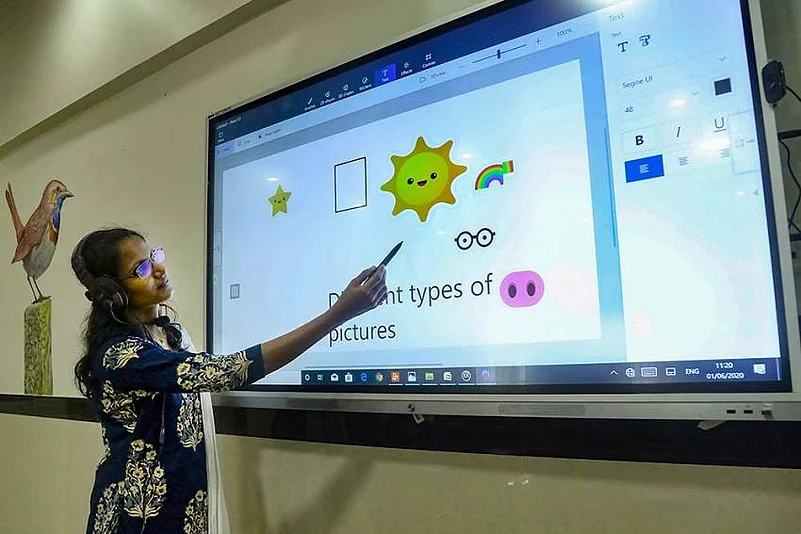Increased corporate involvement could eliminate many of the bottlenecks that have dogged the path of online education ever since it became the default learning medium due to the Covid-19 scare and thereby allay apprehensions expressed by several stakeholders that such a form of education delivery may largely benefit those already privileged.
As the spike in the number of Covid-19 cases likely leads to the continued preference for remote learning in the immediate future, India's corporate sector must come forward in a big way to ensure that online education does not end up creating a class divide among students – those with access to this form of learning delivery and those without.
Increased corporate involvement could eliminate many of the bottlenecks that have dogged the path of online education ever since it became the default learning medium in India due to the Corona scare and thereby allay apprehensions expressed by several stakeholders that such a form of education delivery may largely benefit those already privileged.
Depending on their financial prowess, and, more importantly, intent to act as a force for good, companies can choose between multiple available mechanisms to help remove any possible need for online education to be dumped in favour of an early return to brick-and-mortar establishments despite the health risks associated with doing so in the current environment.
Progressive companies, for instance, can take steps to make personal computers, tablets, mobile phones, etc., available to students who have an economic disadvantage and are living in areas where these enterprises have manufacturing operations. With a special focus on such children whose parents’ livelihoods may have come under severe stress due to the pandemic.
Companies may also consider taking care of the mobile internet charges of some students so that accessing online education becomes less financially taxing for these learners. Enterprises connected with the telecom sector, especially, could provide internet services at special rates to students in precarious financial circumstances.
Corporate groups, moreover, could encourage their white-collar employees to hold fundraisers for students finding it difficult to access online education. And thereafter add their own monetary contribution to the money raised through such employee fundraisers so that the corpus available for aiding students is substantially augmented.
Besides, companies could urge employees, current and former, who have an interest in affairs connected with education to launch their own social media channels for explaining difficult concepts in math, science, etc. in a manner that could benefit students. Such employees may also be gently persuaded to provide voluntary guidance to schools/teachers who are finding it challenging to develop e-content for students.
Further, enterprises having unused factory sites/warehouses located in various geographies could temporarily convert these facilities into mass learning centres by installing TV sets so that students could collectively watch educational programs while maintaining the norms of physical distancing. Companies could collaborate with local government officials for such an initiative.
In their personal capacities, too, industry leaders having a large following on social media could highlight the need for all of us to do our own bit to make certain that online education does not lead to any category of students being left behind. By donating spare phones, PCs, tablets, etc. to kids in our immediate neighbourhood who may need such devices to continue their education, for example.
In the increasingly flattened world we inhabit today, it is unfortunate that students residing in parts of the country condescendingly referred to as “Bharat” often do not receive a standardised education that their counterparts in “India” take for granted. Online education has the potential to make this possible and take India that much closer to meeting the United Nations Sustainable Development Goal 4 (SDG4) targets for Quality Education. India Inc’s contribution could prove invaluable in making online education emerge as this powerful transformation tool.
[The author is Advisor at the Gurgaon-based advisory on communications and stakeholder advocacy R M Consulting https://rmconsulting.in . Views expressed are personal.]
















